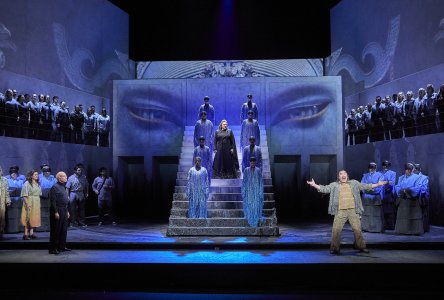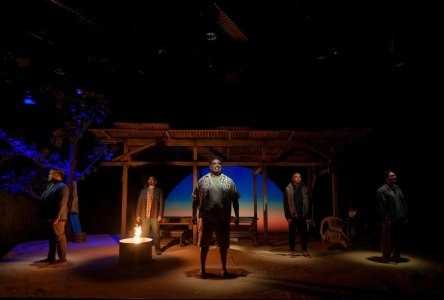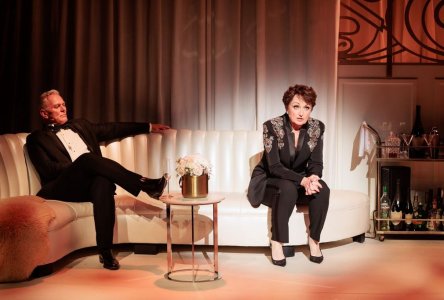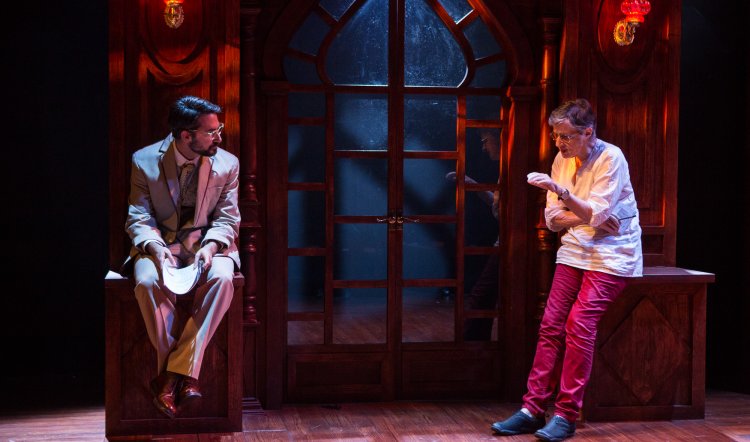
THE GOOD DOCTOR
THE GOOD DOCTOR, Ensemble Theatre, 2 December 2015-17 January 2015; Glen St Theatre 19-24 January2016. Photography by Clare Hawley: above - Adriano Cappelletta and Sandra Bates; right: Chloe Bayliss and Nathan Wilson.
Audiences traditionally love and appreciate writers of comedy decades before critics and academics catch up – just ask Alan Ayckbourn and, of course Neil Simon.
In 1983 Broadway critic Walter Kerr was quoted thus in a biography of the American playwright and screenwriter:
“Because Americans have always tended to underrate writers who make them laugh, Neil Simon's accomplishment have not gained as much serious critical praise as they deserve. His best comedies contain not only a host of funny lines, but numerous memorable characters and an incisively dramatised set of beliefs that are not without merit. Simon is, in fact, one of the finest writers of comedy in American literary history.”
By 1983, Simon already had an astonishing Broadway (and movie) track record: Come Blow Your Horn, Little Me, Barefoot in the Park, The Odd Couple, Sweet Charity, Plaza Suite, Promises Promises, The Last of the Red Hot Lovers, The Prisoner of Second Avenue, The Sunshine Boys – and this one – The Good Doctor. He is a writer to be reckoned with and savoured.
The Good Doctor, first staged in 1973, is a play written by a man whose confidence is high and whose interests are wide-ranging. In this instance, he explores the work of Anton Chekhov – not the plays, but the short stories and the playwright’s life – by turning those stories into discrete playlets. These are most often comical but also shot through with drama and the underlying unease that characterises his great plays.
It takes a while to get used to the character of The Writer (looking suspiciously like Chekhov) narrating events and supplying alternate endings if required. As well he chats with members of the audience and does away with any separation of stage and viewers. But once that’s established the idea of the work and the way it flows from story to story is smoothly and entertainingly executed.
That it did flow smoothly and entertainingly on opening night (December 2) was a miracle and tribute to the company of actors, director and administration. Just six days before, Glenn Hazeldine (The Writer) was on his way to the theatre on his motorcycle when a typically careless car driver took him out.
Lying injured on the tarmac surrounded by shocked passers-by, waiting for an ambulance, the actor’s first instinct was to ring the Ensemble to apologise that he would not be able to work that afternoon on the tech run! Later that day reports from RPA made it obvious that Hazeldine’s injuries would keep him out of the show for some time.
Veteran director, Sandra Bates, whose final production for the Ensemble this is, went to bed that night with a dilemma: Postpone? Push back all performances? Call in another actor? At 2am she awoke with a name – Adriano Cappelletta.
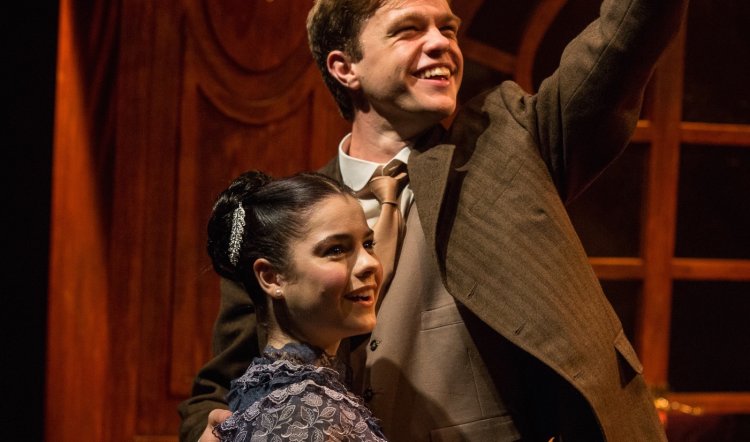
On opening night – just five days later – Cappelletta walked on stage, script in hand, and pretty much owned the role and the audience. It was no easy task. As well as the voluble Chekhov alter ego, he plays three other roles and is never off stage. Amazing to relate that despite the presence of the script and a few minor stumbles, Cappelletta’s confidence and ease with the circumstances meant a relaxed audience when otherwise one might expect tension and discomfort.
The rest of the cast – Chloe Bayliss, David Lynch, Kate Raison and Nathan Wilson – also take on a variety of roles as members of 19th century Chekhovian-Russian society as wryly observed and portrayed. They range from broad slapstick as a minor clerk (Wilson) is traumatised when he accidentally sneezes all over his ultimate boss, the General (Lynch), to poignant: an older widow (Raison) almost connects with a lonely older man (Lynch again) in an unexpected musical interlude (composition Erica Lovell).
A more unexpected turn is that of Raison, as an aristocratic bitch, casually chiselling her children’s nanny (Bayliss) out of her pathetic monthly salary, while Bayliss returns as a tart with a reluctant heart who bargains with an indulgent father (Lynch) over her services as a birthday gift to initiate his teenage son (Wilson). And so it goes – it’s all very Russian.
It should be noted that Erica Lovell was also assistant director on the production and has unexpectedly taken on a stage role as the costumed mover of props and furniture – originally assigned to The Writer and actually much better performed by Lovell’s cheeky urchin.
The Good Doctor is not typical Neil Simon and it might take a while to catch on to the form of it – the individual playlets. But as it and the audience warm up to the idea (given the difficulties faced on opening night, which will disappear any minute) it slowly takes off into its own world.
The suggestion of a timber-built dacha is neatly achieved with one ornately framed timber wall and the period costumes add a welcome sense of time and place for a change (design Graham Maclean, lighting Christopher Page). The inevitable rough edges of opening night could not take away from the play’s interest and the audience’s enjoyment of it.
Retiring director Sandra Bates could have wished for a somewhat less dramatic start to her final production, but the grace and skill with which the company conducted itself and carried off the night said a lot about her – and all of it good. The Good Doctor is short story-telling as brilliantly told by Chekhov and skilfully retold by Neil Simon. Holiday entertainment with a twist.

